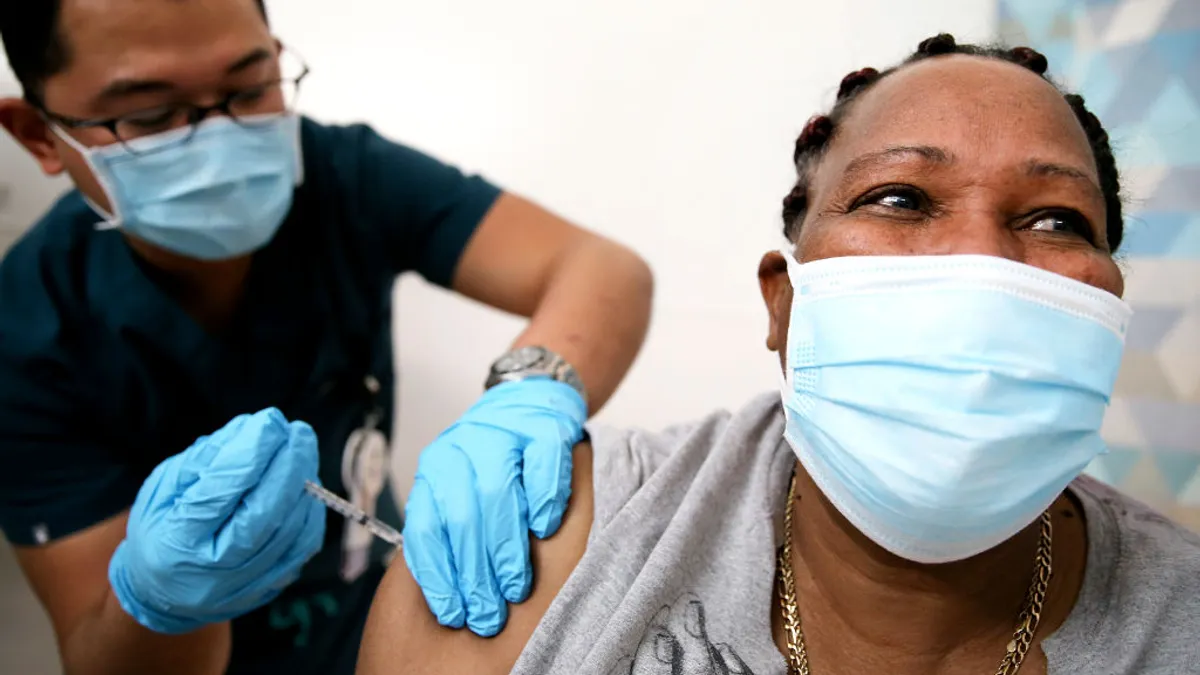Dive Brief:
- United Airlines employees alleged in a Sept. 21 lawsuit that the company violated Title VII of the Civil Rights Act of 1964 and the Americans with Disabilities Act when it failed to provide employees reasonable accommodations for its COVID-19 vaccine mandate (Sambrano, et al. v. United Airlines Inc. No. 21-cv-01074 (N.D. Tex. Sept. 21, 2021)).
- United CEO Scott Kirby announced the airline's vaccine mandate Aug. 6 and said employees would be required to receive a COVID-19 vaccine within five weeks of the Food and Drug Administration granting full approval of a vaccine.
- According to the complaint, the mandate made no room for reasonable accommodations such as periodic testing, mask wearing or social distancing. It also did not account for employees who obtained immunity from the disease by contracting it, the plaintiffs claimed.
Dive Insight:
The employer's move stemmed from Kirby's philosophy that employer vaccine mandates will propel an increase in vaccinations.
"I don't think [mandating vaccination for] air travel on its own will drive a huge increase in vaccination rates," Kirby told CNN Business. He went on to say that he supported the Biden administration's policy mandating employer vaccine or testing policies — that's "probably the most efficient way," he said, "as opposed to creating friction in airports, friction in subways, friction across the board."
But it appears that United's own entry into employer-mandated vaccines hasn't been without friction.
While the mandate reportedly achieved a 99% vaccination rate for U.S. employees — leading the New York Times to call it "one of the largest and most successful corporate efforts of the kind during the pandemic" — the lawsuit raised questions. According to the plaintiff's allegations, United said employees could ask for an exemption from its vaccine requirement based on religious beliefs or health limitations. But Kirby allegedly told employees "‘to be very careful about' requesting such accommodations," the complaint said. He stated that United would allow "very few" accommodations, and allegedly used derisive language to describe employees who asked for an exemption. Kirby said employees who asked for accommodation would effectively be "putting their jobs on the line," the plaintiffs said.
Since vaccines became available, employers have demonstrated some hesitancy in requiring them for workers. Vaccine mandates were off the table for 83% of employers responding to a Fisher Phillip pulse survey released in June. Of those, 32% said they decided against vaccine policies to avoid running afoul of anti-discrimination laws.
But the U.S. Equal Employment Opportunity Commission — the agency that enforces the nation's anti-discrimination laws — has long been clear that employers can require workers to get COVID-19 vaccines. However, the agency has always highlighted a major caveat: to comply with Title VII and the ADA, employers must provide reasonable accommodations to those policies for workers who cannot receive a vaccine due to sincerely held religious beliefs or a medical condition.














